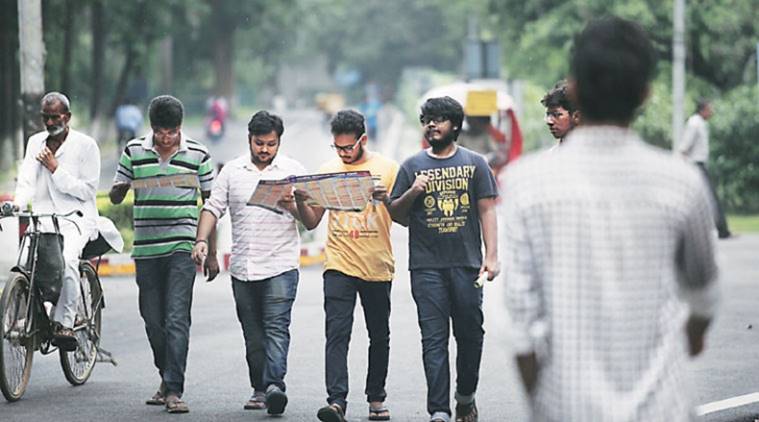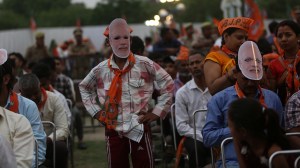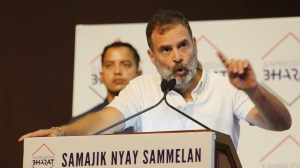- India
- International
Govt’s first move to allow foreign universities to set up campuses here
This, effectively, reverses the BJP’s earlier stand on the Foreign Educational Institutions Bill moved by the UPA-II government.
 The HRD Ministry is learnt to have circulated the draft law for inter-ministerial consultation this week.
The HRD Ministry is learnt to have circulated the draft law for inter-ministerial consultation this week.
The Narendra Modi government has dusted off the then UPA government’s plan to allow foreign universities to set up campuses in India by introducing a provision in the Higher Education Commission of India Bill to permit their entry and operation.
The Bill aims to set up a single higher education regulator that will replace the University Grants Commission (UGC) and the All India Council of Technical Education (AICTE). The HRD Ministry is learnt to have circulated the draft law for inter-ministerial consultation this week.
The Bill, sources said, carries a clause stating that the new Higher Education Commission can permit “highly-reputed foreign universities” to set up campuses in India. This, effectively, reverses the BJP’s earlier stand on the Foreign Educational Institutions Bill moved by the UPA-II government.
At that time, one of the main reservations on foreign universities operating in India was that they would raise the cost of education (high tuition fees, faculty poaching from public universities), rendering it out of reach for a large part of the population.
The Modi government, in its first term, had made several attempts to revive the Foreign Educational Institutions Bill, with NITI Aayog and the Commerce Ministry mainly pushing for it.

Many failed attempts
governments IN past tried to enact legislation for entry, operation and regulation of foreign universities. UPA-II’s Foreign Educational Institutions Bill failed to pass muster and lapsed following opposition from BJP, Left, SP.
The conversation on reviving the UPA’s plan to permit foreign universities to enter India started with a strategy paper that was shared by the Commerce Ministry, in April 2015, with the Ministries of External Affairs and Human Resource Development and NITI Aayog. This paper argued in favour of the “internationalisation” of Indian education to earn more foreign exchange and create an ‘Educated in India’ brand. The resurrection of the Foreign Educational Institutions Bill was one of the four action points cited by the Commerce Ministry in the strategy paper.
Following this, Modi called a meeting of top bureaucrats in June 2015 to discuss the feasibility of allowing foreign universities to set up campuses in India. At this meeting, the PM tasked NITI Aayog with preparing a feasibility report. NITI Aayog, in its report submitted to the PMO and HRD Ministry, favoured the entry of foreign universities.
The Commerce Ministry, in 2016, proposed that foreign universities should be allowed to set up campuses in the Special Economic Zones (SEZs), which will not have to follow domestic regulations such as non-repatriation of profits. The HRD Ministry did not support the idea.
However, after the initial years of opposition, the HRD Ministry finally came on board and included internationalisation as one of its focus areas in its ambitious five-year plan called ‘Education Quality Upgradation and Inclusion Programme’ (EQUIP) released last month. The five-year vision document proposes that the government revisit the Foreign Education Providers Bill (shelved during UPA-II) “with an open mind”.
The draft National Education Policy, released for public feedback in June, also pitches for permitting the world’s top 200 institutions to set up branches in India, with a new law to regulate the latter’s entry and operation.
Apr 25: Latest News
- 01
- 02
- 03
- 04
- 05








































